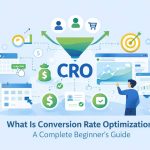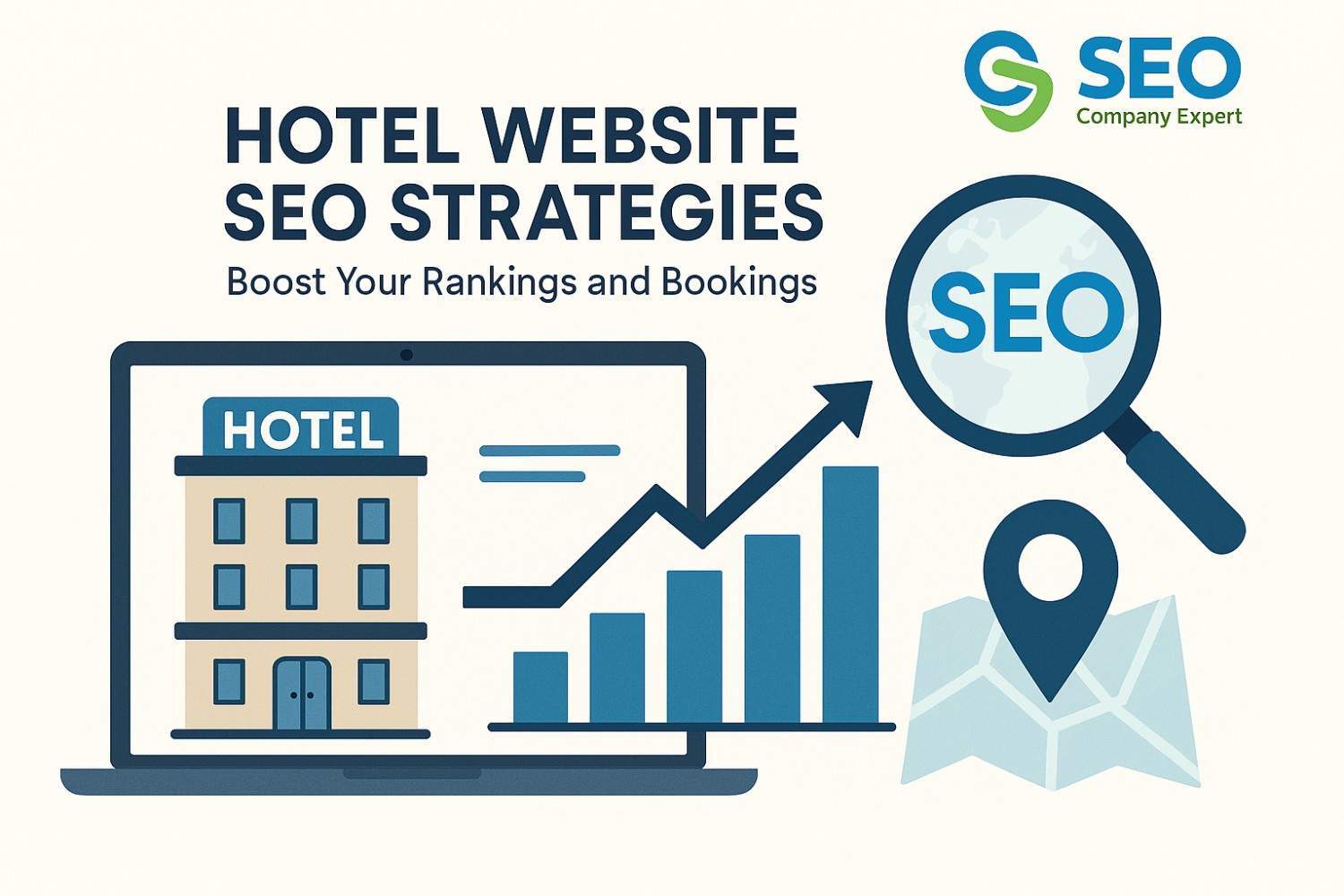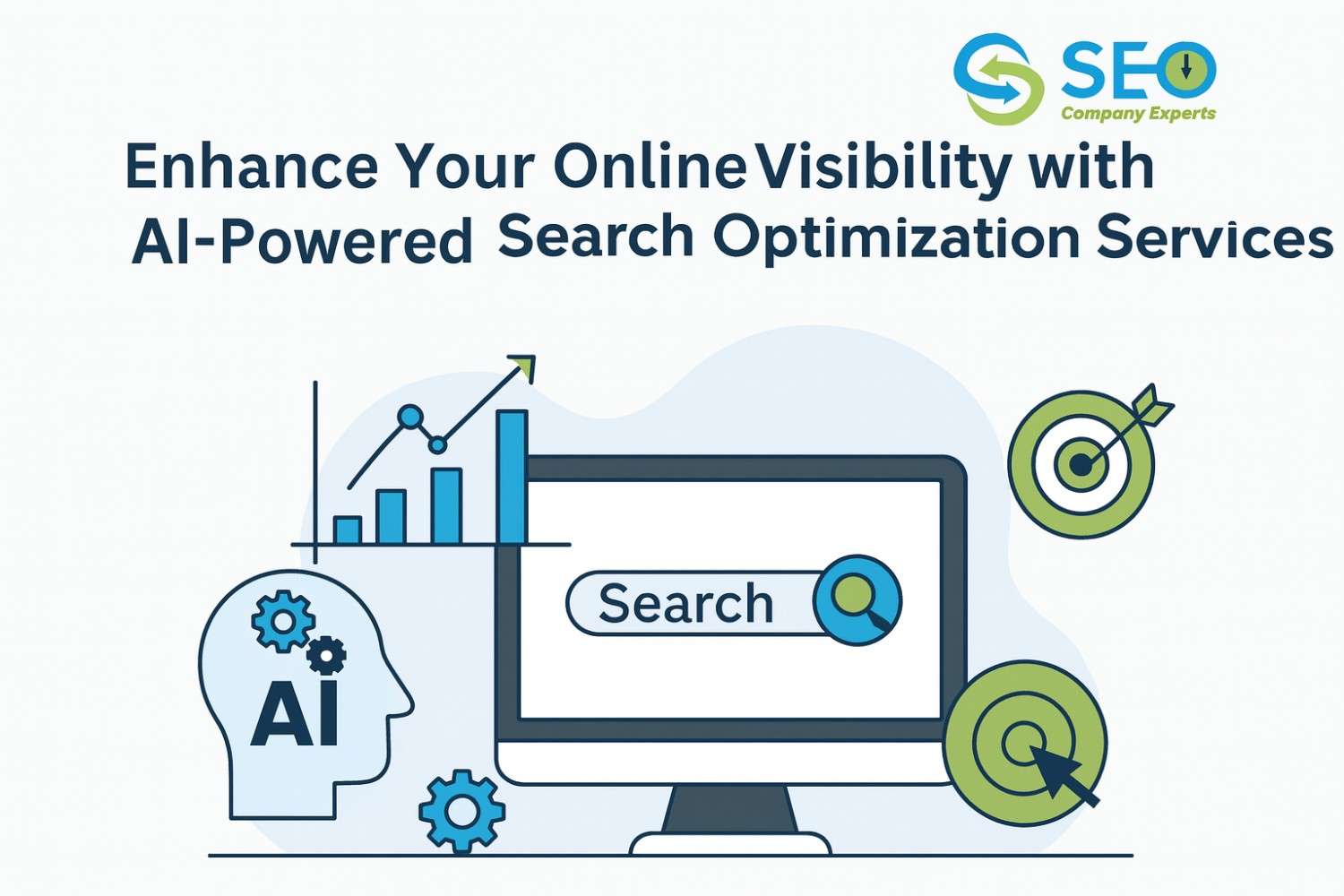

The global hotel industry generates over $600 billion annually, yet 78% of travelers still begin their accommodation search on Google rather than booking directly through hotel websites. This massive search volume represents an unprecedented opportunity for hotels to capture direct bookings and reduce their dependency on expensive third-party platforms that charge commission fees ranging from 15-25% per reservation.
Despite this digital goldmine, most hotel websites struggle with poor search visibility, ranking on page two or beyond for crucial keywords like “[city] hotels” or “luxury accommodations near [landmark].” Without strategic hotel website SEO strategies, properties miss out on millions of potential direct bookings annually, forcing them into costly relationships with online travel agencies (OTAs) that erode profit margins and limit guest relationship building opportunities.
Why Hotel Website SEO is Critical for Direct Bookings Success
Hotel website SEO serves as your property’s most powerful revenue generation tool, working continuously to attract qualified prospects actively searching for accommodations. Unlike paid advertising that stops delivering results the moment you pause spending, effective SEO compounds over time, building sustainable organic visibility that drives consistent direct bookings.
Hotels implementing comprehensive SEO strategies for hotel websites typically experience 40-60% increases in direct booking revenue within 10-12 months. This dramatic improvement stems from capturing high-intent searchers at the exact moment they’re researching accommodation options in your market.
Current State of Hotel SEO Competition
The hospitality SEO landscape has become increasingly competitive as major OTA platforms invest heavily in dominating generic hotel searches. Booking.com and Expedia collectively spend over $8 billion annually on digital marketing, making it challenging for individual properties to compete on broad terms.
However, this concentration creates opportunities for hotels focusing on local SEO for hotels strategies. Location-specific searches like “boutique hotels downtown Seattle” or “family resorts near Yellowstone” offer better conversion potential and lower competition than generic hospitality keywords.
ROI of Effective Hotel SEO Strategies
Consider a mid-sized hotel paying $180,000 annually in OTA commissions on $1.2 million in bookings. Strategic SEO strategies for hotel websites that shift just 25% of those bookings to direct channels save $45,000 in commission fees while building stronger guest relationships and enabling upselling opportunities.
The long-term financial impact becomes even more compelling. SEO investments continue generating returns for years, while OTA commissions represent permanent revenue loss on every booking facilitated through third-party platforms.
Foundation Elements of Hotel Website SEO
Building successful hotel SEO requires mastering fundamental hotel website ranking factors that search engines prioritize when determining which properties appear for accommodation searches. These technical foundations determine whether your content can compete effectively against established hospitality competitors.
Modern search algorithms evaluate over 200 ranking signals, but certain factors carry disproportionate weight for hotel websites. Page loading speed becomes critical when guests browse photo galleries and navigate booking forms, while mobile optimization directly impacts conversion rates since 73% of hotel searches now occur on mobile devices.
Essential Hotel Website Ranking Factors
Search engines prioritize user experience signals that indicate visitor satisfaction and engagement. Hotels with fast-loading pages, intuitive navigation, and mobile-responsive designs consistently outrank competitors with superior content but poor technical implementation.
- Page loading speeds under 3 seconds across all device types
- Mobile-first responsive design with touch-friendly interfaces
- Secure HTTPS encryption for payment processing and data protection
- Clean URL structures reflecting location hierarchy and room categories
- Optimized images with proper compression and descriptive alt tags
Local relevance signals significantly impact hotel website ranking factors since most accommodation searches include geographic modifiers. Consistent NAP (Name, Address, Phone) data across all online platforms builds trust signals that improve local search authority.
Technical SEO Requirements for Hotels
Hotel websites require specialized technical optimization approaches that balance visual appeal with loading performance. High-resolution room photography essential for conversion can severely impact page speeds without proper optimization techniques.
Booking form functionality must load quickly while maintaining security standards that protect guest payment information. SSL certificates and PCI compliance aren’t just security requirements—they’re ranking factors that search engines evaluate when determining website trustworthiness.
Hotel-Specific On-Page SEO Elements
Each room type and amenity page needs unique optimization targeting specific guest search behaviors. Business travelers searching for “hotels with conference rooms” require different content optimization than families looking for “kid-friendly resorts with pools.”
Schema markup implementation helps search engines understand hotel-specific information like star ratings, amenities, pricing ranges, and availability. Structured data enables rich snippets that increase click-through rates by displaying room photos, ratings, and pricing directly in search results.
Local SEO for Hotels: Dominating Your Geographic Market
Local marketing for small business principles apply powerfully to hotel SEO since 86% of accommodation searches include location-specific terms. Geographic proximity influences booking decisions more than brand recognition, making local optimization essential for sustainable direct booking growth.
Google Business Profile optimization serves as your hotel’s primary local search presence. Complete, regularly updated profiles with accurate information, high-quality photos, and consistent posting schedules improve local search visibility significantly.
Google Business Profile Optimization for Hotels
Successful hotel GBP management requires treating your profile as a dynamic marketing channel rather than static business listing. Regular updates showcasing seasonal packages, property improvements, and local events signal active management to search engines.
Professional photography highlighting unique property features, room types, and amenities helps potential guests visualize their stay experience. Include images of dining areas, fitness facilities, meeting spaces, and local attractions to address diverse traveler interests and search intents.
Local Citation Building and NAP Consistency
Directory listings across hospitality-specific platforms build local search authority while providing potential booking referral sources. Consistent business information across all citations reinforces location relevance signals that improve local rankings.
- TripAdvisor and hospitality review sites
- Local chamber of commerce directories
- Regional tourism board listings
- Google Maps and Apple Maps business profiles
- Industry-specific directories like Hotels.com and Booking.com
Citation inconsistencies confuse search engines and weaken local ranking potential. Regular audits ensuring matching business names, addresses, and phone numbers across all platforms maintain strong local SEO foundations.
Hyperlocal Content Strategies
Creating location-specific landing pages for nearby attractions, business districts, and transportation hubs captures long-tail search traffic while demonstrating local expertise. Content addressing “hotels near [specific landmark]” queries often converts better than generic location pages.
Partnership content with local restaurants, entertainment venues, and tour operators builds topical authority while providing valuable guest information. These collaborations often generate natural backlinks that strengthen overall domain authority.
Advanced SEO Strategies for Hotel Websites
Modern hotel SEO must address emerging search technologies reshaping how travelers discover and book accommodations. Hotel voice search optimization targets natural language queries that differ significantly from traditional keyword searches.
Voice search users typically ask complete questions like “What are the best family hotels in Miami Beach with pools?” rather than typing fragmented keywords. This behavioral shift requires content optimization for conversational query patterns.
Voice Search Optimization for Hotels
Long-tail conversational keywords align with voice search behavior while often facing less competition than short generic terms. Optimizing for question-based queries starting with “where,” “what,” “how,” and “which” captures voice search traffic effectively.
FAQ sections optimized for voice queries serve dual purposes: capturing featured snippet opportunities while providing content that voice assistants can easily extract and verbalize to users researching accommodations.
AEO (Answer Engine Optimization) for Hotels
AEO for hotels focuses on creating authoritative content that AI systems confidently cite in generated responses. Clear, factual information formatted with proper headings and bullet points increases inclusion in AI-generated search summaries and chatbot responses.
Featured snippet optimization requires structuring answers to common hotel questions in formats that search engines can easily extract and display. Questions about amenities, policies, location benefits, and booking procedures represent prime featured snippet opportunities.
Optimizing for AI Overviews and LLMs
Content formatting for AI consumption requires balancing human readability with machine parsing capabilities. Structured data implementation helps AI systems understand relationships between hotel features, pricing, and availability information.
Clear hierarchical content organization enables AI models to extract accurate information for user queries. Hotels providing well-structured, authoritative content position themselves favorably for inclusion in AI-generated travel recommendations.
GEO (Generative Engine Optimization) Strategies
GEO for hotels represents the next evolution in hospitality SEO, optimizing content for AI-powered search experiences that generate personalized recommendations rather than traditional ranked results lists.
Content optimization for generative responses requires comprehensive coverage of guest questions, detailed amenity descriptions, and clear policy information that AI systems can confidently reference when making accommodation recommendations to users.
Content Marketing Strategies for Hotel Websites
Hospitality content marketing drives both SEO value and direct booking conversions through strategic topic selection and guest-focused optimization. Successful hotel content addresses traveler questions throughout the research and booking journey while naturally incorporating target keywords.
Location-based content performs exceptionally well for hotels since travelers research destinations alongside accommodation options. Guides to local attractions, seasonal activities, and dining recommendations establish topical authority while capturing valuable long-tail search traffic.
Creating High-Converting Hospitality Content
Content strategy should address different guest personas and travel purposes throughout your target market. Business travelers require different information than leisure families, necessitating varied content approaches that speak to specific needs and search behaviors.
- Detailed room descriptions with virtual tour integration
- Local attraction guides highlighting unique area experiences
- Seasonal package descriptions optimized for holiday searches
- Guest story features showcasing memorable stay experiences
- Business travel resources for corporate booking decision-makers
Visual content optimization becomes crucial for hospitality websites since accommodation decisions rely heavily on property appearance and amenity quality. Professional photography with proper SEO optimization supports both user experience and search visibility goals.
Room and Amenity Page Optimization
Each accommodation type requires unique optimization targeting specific search behaviors and guest preferences. Luxury suite pages need different keyword focus than standard room descriptions, reflecting varied search intents and booking considerations.
Compelling copy that converts browsers into bookers balances SEO optimization with persuasive messaging that addresses common guest concerns and highlights unique selling propositions that differentiate your property from competitors.
Local Experience and Attraction Content
Partnership content with local businesses creates valuable resources for potential guests while building natural backlink opportunities that strengthen domain authority. Collaborative guides to area restaurants, entertainment, and activities demonstrate local expertise.
Seasonal content strategies address peak booking periods and special events that drive accommodation demand. Holiday packages, festival guides, and weather-based activity recommendations capture time-sensitive search traffic.
Hotel SEO Tools and Analytics
Hotel SEO tools enable data-driven optimization decisions and competitive analysis essential for sustainable ranking improvements. Effective tool selection depends on property size, market competition, and internal SEO expertise levels.
Free platforms like Google Analytics and Search Console provide essential baseline insights for tracking organic traffic, keyword performance, and technical issues affecting search visibility. Premium tools offer advanced features for competitive research and comprehensive rank monitoring.
Essential Hotel SEO Tools for Success
SEMrush and Ahrefs excel at hospitality keyword research, revealing which terms drive traffic to competing properties and identifying content opportunities for capturing additional market share. These platforms provide competitive intelligence that informs strategic optimization priorities.
- Keyword research platforms (SEMrush, Ahrefs, Moz)
- Local SEO management (BrightLocal, Whitespark)
- Technical audit tools (Screaming Frog, GTmetrix)
- Review management platforms (ReviewTrackers, Reputation.com)
Local SEO tools specifically designed for multi-location businesses help hotel chains manage consistent citations, monitor local rankings, and coordinate review response strategies across properties.
Keyword Research Tools for Hotels
Industry-specific keyword discovery requires understanding seasonal booking patterns, regional terminology variations, and emerging travel trends that influence search behavior. Tools providing historical search volume data help identify optimal content timing for maximum visibility impact.
Seasonal keyword planning aligns content publication with peak search periods for specific accommodation types and destination activities. Ski resort hotels optimize winter sport content differently than beach properties targeting summer vacation searches.
Performance Tracking and ROI Measurement
Conversion tracking setup for booking attribution requires sophisticated analytics implementation that connects organic search visits with actual reservation completions. Multi-touch attribution models help quantify SEO’s contribution to direct booking revenue.
Dashboard creation for stakeholder reporting should focus on metrics that demonstrate SEO’s business impact rather than vanity metrics like keyword rankings that don’t directly correlate with revenue generation.
Hotel Review Management and SEO
Hotel review management SEO represents a critical ranking factor that many properties overlook in their optimization strategies. Search engines interpret review quantity, quality, and management responses as trust signals that influence both local and organic search positions.
Reviews generate fresh, user-generated content that naturally incorporates relevant keywords guests use when describing their experiences. This authentic language often mirrors search queries from potential visitors researching similar accommodations.
SEO Impact of Online Reviews
Review signals function as third-party validation that search engines trust more than self-promotional content. Properties with consistent positive reviews and professional response management typically achieve better local search visibility than competitors with superior technical SEO but poor reputation management.
Response strategies should address SEO considerations alongside reputation management goals. Thoughtful responses incorporating location keywords and amenity mentions provide additional relevant content while demonstrating active guest engagement to search engines.
Reputation Management Strategies
Systematic review acquisition requires proactive approaches beyond simply requesting feedback from satisfied guests. Email follow-up sequences, in-room review prompts, and staff training create sustainable review generation systems that improve long-term SEO performance.
Professional response protocols for negative reviews can actually benefit SEO when handled strategically. Detailed, helpful responses that address specific concerns demonstrate commitment to guest satisfaction while providing additional keyword-relevant content.
Using Reviews for Content Creation
Common review themes provide valuable insights for FAQ development and content optimization. Guest questions and concerns mentioned frequently in reviews represent search query opportunities that targeted content can address effectively.
Review-based content creation ensures alignment with actual guest experiences and questions, improving content relevance for both search engines and potential visitors researching your property.
Hotel SEO Best Practices and Common Mistakes
Hotel SEO best practices require balancing technical optimization with compelling user experiences that drive both search visibility and booking conversions. Many properties focus excessively on keyword density while neglecting fundamental factors like page loading speeds and mobile usability.
Successful hotel SEO implementation requires systematic approaches that address technical foundations before advancing to content marketing and link building strategies. Skipping foundational elements often results in disappointing results despite significant content investment.
Top Hotel SEO Best Practices
SEO tips for hotel websites that deliver measurable results focus on user intent alignment and local relevance optimization. Create unique, valuable content for each room type and amenity while maintaining consistent technical standards across all pages.
Actionable Hotel SEO Checklist:
- Optimize page loading speeds to under 3 seconds
- Implement mobile-responsive design with touch-friendly navigation
- Create unique content for each room type and amenity page
- Maintain consistent NAP data across all online platforms
- Respond professionally to all online reviews within 24-48 hours
- Publish fresh, location-relevant content monthly
- Monitor and fix technical SEO issues promptly
Regular content updates signal active website management to search engines while providing fresh information that encourages repeat visits from potential guests researching their accommodation options.
SEO Tips for Hotel Websites That Actually Work
Proven strategies with measurable results focus on creating comprehensive guest resources that address every stage of the booking journey. From initial destination research through post-stay follow-up, successful hotel websites provide valuable content that builds trust and encourages direct bookings.
Case study analysis reveals that hotels combining technical optimization with strategic content marketing achieve 60% better ranking improvements than properties focusing solely on technical factors or content creation in isolation.
Common Hotel SEO Mistakes to Avoid
Duplicate content across room pages represents a frequent technical mistake that undermines SEO potential. Each accommodation type requires unique descriptions, amenities lists, and optimization targeting specific guest search behaviors.
Missing alt tags on property photography waste valuable optimization opportunities since images often appear in search results for accommodation-related queries. Descriptive file names and alt text help search engines understand visual content context.
Advanced Booking Conversion Strategies
How to get more hotel bookings with SEO requires sophisticated conversion optimization that extends beyond achieving high search rankings. Successful strategies combine visibility improvements with user experience enhancements that effectively guide visitors through the booking process.
Landing page optimization for booking conversion involves reducing friction points, building trust through social proof, and creating compelling calls-to-action that motivate immediate reservation completions rather than continued comparison shopping.
How to Get More Hotel Bookings with SEO
Conversion rate optimization tactics that transform search visibility into actual bookings require understanding guest psychology throughout the decision-making process. Travelers typically research multiple properties before booking, making differentiation and trust-building critical for conversion success.
SEO strategies that drive bookings focus on capturing high-intent keywords that indicate immediate booking readiness. Terms including “availability,” “rates,” and “book now” represent valuable conversion opportunities that require specialized optimization approaches.
Landing Page Optimization for Direct Bookings
Booking form optimization requires balancing information collection with user experience simplicity. Lengthy forms increase abandonment rates, while insufficient information creates booking uncertainty that encourages visitors to continue researching alternatives.
Trust signal implementation through security badges, guest testimonials, and transparent pricing helps overcome booking hesitation that prevents conversion completion. Clear cancellation policies and rate guarantees address common concerns that cause visitors to book through perceived “safer” OTA platforms.
Seasonal SEO Strategies for Hotels
Peak season optimization requires advanced content planning that anticipates search behavior changes throughout different booking cycles. Holiday packages, event-based promotions, and weather-dependent activity guides capture time-sensitive search opportunities.
Off-season marketing approaches focus on unique value propositions that attract travelers during traditionally slower periods. Business travel promotions, local resident packages, and extended stay discounts target different market segments with varied search behaviors.
Measuring Hotel SEO Success and ROI
Effective measurement of hotel SEO strategies requires comprehensive analytics implementation that tracks both search performance and business impact metrics. Ranking improvements without corresponding booking increases indicate optimization approaches that lack commercial focus.
Revenue attribution models help quantify SEO’s contribution to overall hotel profitability by tracking visitor journeys from initial search discovery through booking completion and potential repeat visits.
Key Performance Indicators for Hotel SEO
Performance measurement should prioritize metrics that demonstrate business value rather than technical achievements that don’t correlate with revenue generation. Direct booking attribution, conversion rate improvements, and OTA dependency reduction provide meaningful success indicators.
Essential Hotel SEO Metrics:
- Organic traffic growth for booking-intent keywords
- Direct booking conversion rate improvements
- Reduced OTA commission expenses
- Local search visibility for location-based queries
- Average booking value from organic traffic sources
Long-term tracking reveals SEO’s compound benefits that increase over time as domain authority strengthens and content marketing efforts build comprehensive topical coverage.
SEO Reporting for Hotel Management
Executive reporting should translate SEO performance data into financial impact metrics that demonstrate optimization ROI. Revenue increases, cost savings from reduced OTA dependency, and guest acquisition cost improvements provide compelling business justification for continued SEO investment.
Monthly performance reviews enable rapid optimization adjustments based on search algorithm updates, seasonal booking pattern changes, and competitive landscape shifts that require strategic response.
Long-term SEO Strategy Planning
Annual SEO roadmap development aligns optimization priorities with business growth objectives and market expansion goals. Strategic planning anticipates major algorithm updates, emerging technologies, and changing consumer search behaviors that require proactive adaptation.
Budget allocation strategies should balance immediate optimization needs with long-term authority building initiatives that create sustainable competitive advantages in local hospitality markets.
Future-Proofing Your Hotel SEO Strategy
Emerging search technologies continue reshaping accommodation discovery patterns and booking behaviors. GEO for hotels and AI-powered recommendation systems represent significant shifts that forward-thinking properties must address proactively.
Sustainable SEO strategies anticipate technological changes while building foundational authority through consistent, helpful content creation that serves travelers regardless of specific search interface evolution.
Emerging Trends in Hotel SEO
Artificial intelligence integration in hospitality SEO extends beyond search optimization to encompass chatbot interactions, personalized content delivery, and automated review management systems that enhance both guest experience and search visibility.
Sustainability content optimization addresses growing environmental consciousness among travelers while building topical authority in responsible tourism practices. Green certifications, local sourcing initiatives, and carbon offset programs represent emerging optimization opportunities.
Preparing for Algorithm Updates
Google releases thousands of algorithm updates annually, with major core updates occurring 2-4 times per year that can dramatically impact hotel search rankings. Properties depending on outdated SEO tactics often experience significant ranking drops during these updates, while hotels following current best practices typically maintain or improve their positions.
Building algorithm-resistant SEO strategies requires focusing on fundamental ranking factors that remain consistent across updates: user experience, content quality, mobile optimization, and local relevance. Hotels prioritizing these core elements develop resilience against ranking volatility that affects competitors using manipulative tactics.
- Create comprehensive, helpful content that genuinely serves traveler needs
- Maintain fast loading speeds and excellent mobile user experience
- Build natural backlink profiles through valuable content and local partnerships
- Focus on local authority through consistent NAP data and community engagement
- Diversify traffic sources beyond organic search dependence
Regular SEO audits help identify potential vulnerabilities before algorithm updates impact rankings. Hotels monitoring their backlink profiles, content quality, and technical performance can proactively address issues that might trigger ranking penalties during major algorithm changes.
Data, Statistics, and Industry Insights
Recent hospitality industry research reveals compelling trends that underscore the critical importance of strategic hotel SEO investment. According to Phocuswright’s latest travel research, direct bookings through hotel websites increased 23% in 2024, with SEO-optimized properties capturing disproportionate shares of this growth trend.
Google’s travel industry report indicates that 84% of travelers use mobile devices for initial hotel research, with 67% completing bookings on the same device used for initial discovery. This mobile-first behavior emphasizes the critical importance of responsive design and fast-loading interfaces in modern hotel website SEO strategies.
STR Global’s comprehensive analysis found that hotels ranking in top 3 Google positions for their primary location keywords generate 73% more direct booking inquiries compared to properties ranking positions 4-10. The average hotel website converts 2.1% of visitors into bookings, but properties with comprehensive SEO optimization achieve conversion rates exceeding 4.3%.
TripAdvisor’s booking behavior analysis shows that 79% of travelers research local attractions and dining options before finalizing accommodation choices. Hotels with comprehensive local content strategies capture this preliminary research phase, positioning their properties advantageously during the critical decision-making process that ultimately determines booking destinations.
Conclusion
The hospitality industry’s digital transformation demands strategic hotel website SEO strategies that balance immediate booking conversions with sustainable long-term visibility growth. Success requires consistent implementation of proven optimization techniques while adapting to emerging search technologies and evolving guest expectations. Properties investing in comprehensive SEO foundations today build competitive advantages that strengthen annually, reducing marketing costs while increasing direct booking profitability.
The financial benefits extend far beyond simple ranking improvements, with hotels successfully reducing OTA dependency by 20-30% generating substantial commission savings while building direct guest relationships. Effective hotel SEO strategies represent both immediate opportunity and long-term investment in sustainable business growth that compounds over time, creating lasting value that far exceeds initial optimization investments in an increasingly competitive digital marketplace.





